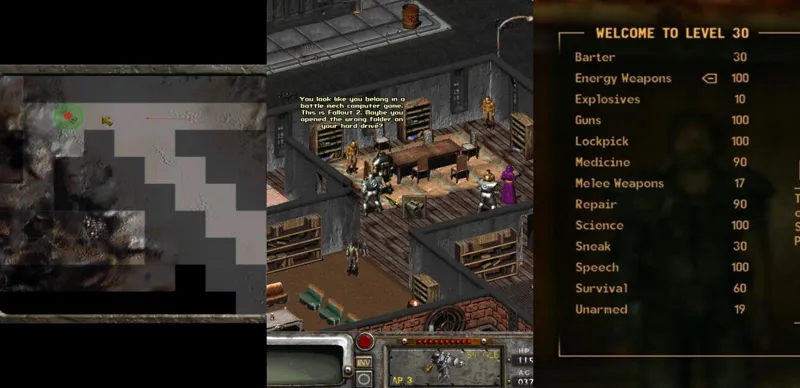The world of Fallout has undergone substantial changes since its inception nearly 25 years ago. After a period of stagnation, Bethesda took the reins and introduced a fresh direction with Fallout 3 in 2008. This marked a significant departure in both gameplay mechanics and artistic style, eliciting mixed reactions from fans.
Updated February 23, 2024, by Gregory Gomez: As the Fallout franchise nears its third decade, it has seen remarkable transformations and omissions of classic elements that once defined the series. These iconic Fallout tropes, now extinct, have sparked discussions among fans, either mourning their absence or endorsing their removal. Let's delve into more classic Fallout tropes that have faded away.
11 Ending Slides
The Evolution of Epilogue Slides Based on Choices Made

In the early Fallout titles and New Vegas, players were presented with ending slides narrated by Ron Perlman, detailing the consequences of their decisions on the wasteland. However, this feature began to diminish with Fallout 3 and was further diluted in Fallout 4, moving away from impactful player choices.
10 Diminished Super Mutant Intelligence
A Shift from Intelligent Mutants to Brute Archetypes

Super Mutants in recent Fallout installments have devolved into simplistic, brute-like creatures, lacking the intellect seen in earlier games like Fallout 1, 2, and New Vegas. This departure can be attributed to a shift in lore, where only specific individuals retain their mental faculties post-exposure to the FEV virus.
9 Transition from Turn-Based Combat
Moving from Strategic Turns to Real-Time Action

Early Fallout games featured turn-based combat, a stark contrast to the real-time, first-person combat of newer titles like Fallout 3. This strategic combat system, though perceived as slow by modern standards, was a hallmark of the series, eventually replaced by the more action-oriented FPS-RPG style.

